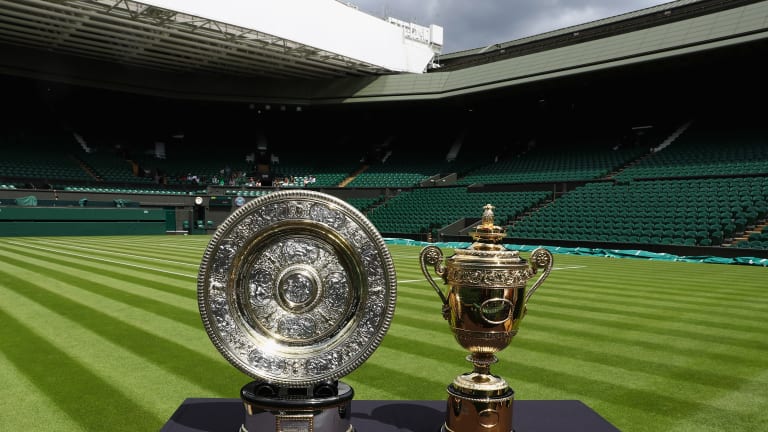Wimbledon
Pushed, Wimbledon falls on its sword, will allow Russian and Belarusian to compete in its 2023 Championships
By Mar 31, 2023Wimbledon
Darren Cahill: Jannik Sinner watches more Carlos Alcaraz matches than he does with any other player
By Jul 14, 2025Wimbledon
Jannik Sinner reignites Carlos Alcaraz rivalry with Wimbledon victory
By Jul 14, 2025Wimbledon
Jannik Sinner reversed his usual pattern against Carlos Alcaraz. It won him Wimbledon
By Jul 14, 2025Wimbledon
Veronika Kudermetova and Elise Mertens win women's doubles title at Wimbledon
By Jul 13, 2025Wimbledon
Joy to the World: What Carlos Alcaraz has, and what we are enjoying
By Jul 13, 2025Wimbledon
Iga Swiatek keeps surprising herself after Wimbledon title caps "surreal" turnaround on grass
By Jul 12, 2025Wimbledon
Iga Swiatek wins first Wimbledon, sixth Grand Slam title with 6-0, 6-0 rout of Amanda Anisimova
By Jul 12, 2025Wimbledon
Wimbledon men's final preview: Will Carlos Alcaraz, Jannik Sinner share another epic?
By Jul 12, 2025Wimbledon
Julian Cash, Lloyd Glasspool become first all-British pair to win Wimbledon men's doubles title since 1936
By Jul 12, 2025Pushed, Wimbledon falls on its sword, will allow Russian and Belarusian to compete in its 2023 Championships
The ranking ramifications from last year's ban have helped spur a reversal, which might yield some unexpected, counter-intuitive outcomes.
Published Mar 31, 2023
Advertising
Advertising
Advertising

No Russian or Belarusian players were allowed to compete at Wimbledon last year, a decision that led the ATP and WTA to strip the esteemed tournament of its ranking points.
© 2016 Getty Images